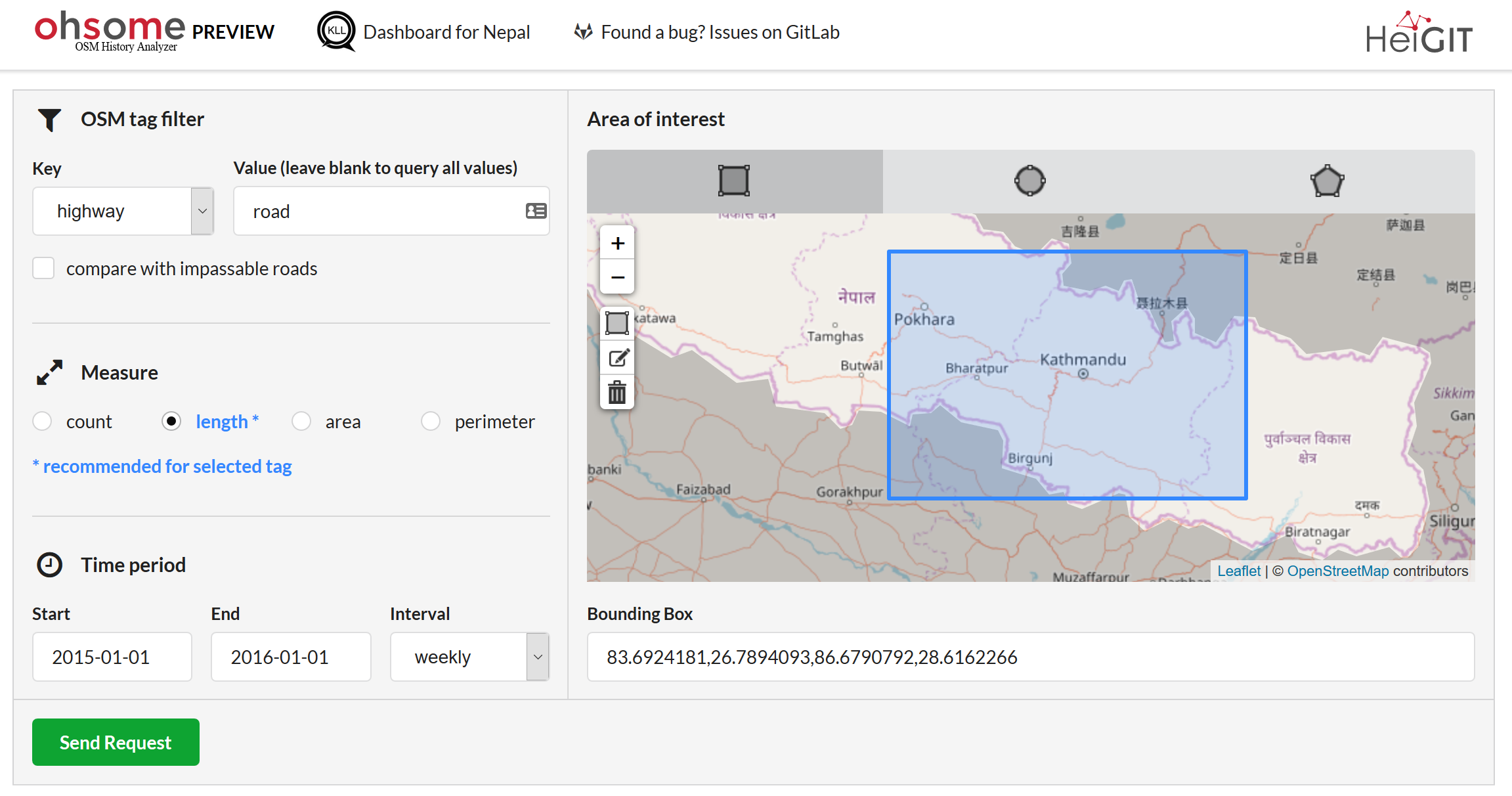The ohsome OpenStreetMap history analytics platform, which is currently developed at HeiGIT, will make OSM’s full-history data more easily accessible. We are pleased to announce that we are coming closer to reaching our objectives, hereby sharing a preview of the first ohsome web dashboard. Our dashboards will allow you to explore OSM full-history data using an intuitive user interface, enabling everyone to easily operate on the rather complex and computationally intensive data.
The ohsome Nepal dashboard was sketched in consultation with our partners Kathmandu Living Labs (KLL). In the aftermath of the Nepal earthquake in April/May 2015, the KLL team coordinated the global OSM community in collaboration with the Humanitarian OpenStreetMap Team. The Nepal dashboard visualizes these efforts and shows the evolution of OSM building and OSM highway data that were contributed in scope of the disaster activation and beyond. As damaged housing areas were tagged as landuse=brownfield during the earthquake response, it also allows you to explore the history of OSM landuse data.
Additionally, we provide an OSM tag filter, which can give you first insights regarding data quality. For example, the OSM tag highway=road is considered to be temporary and is used for unknown or unverified roads. During the direct Nepal earthquake response the percentage of OSM highways tagged as roads increased. This indicates possible semantic inaccuracies in the post-disaster dataset, however, was further validated by the OSM community. Have a look at the Nepal dashboard to learn about more details.
This first prototype will be extended with support of the KLL team to develop an ohsome KLL dashboard that also considers further information of OSM’s full-history, e.g., about OSM user activity in Nepal.
We are very looking forward to hearing your ideas for our awesome ohsome dashboards as we are planning to address many further use cases in the future!
This work is supported by the Klaus Tschira Foundation, Heidelberg. It builds upon earlier and current research on extrinsic and intrinsic OSM data quality analytics of the HeiGIT and GIScience Research Group and the growing international body of literature.




